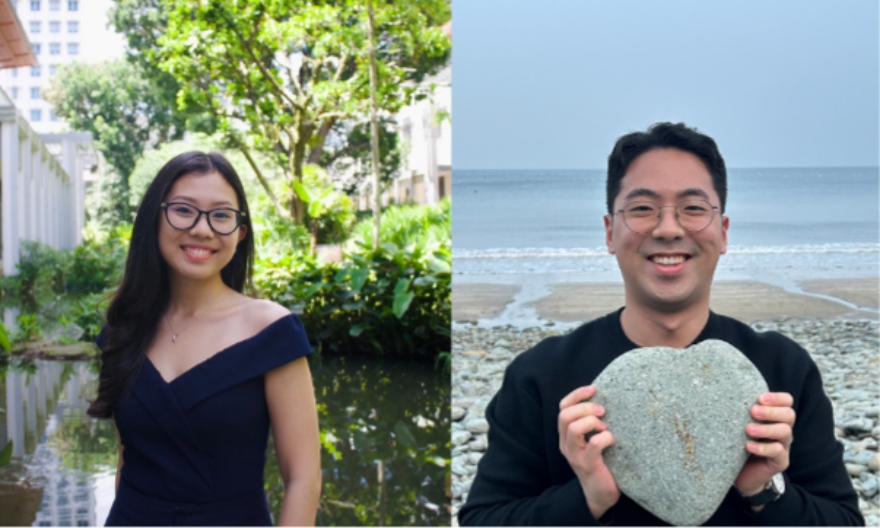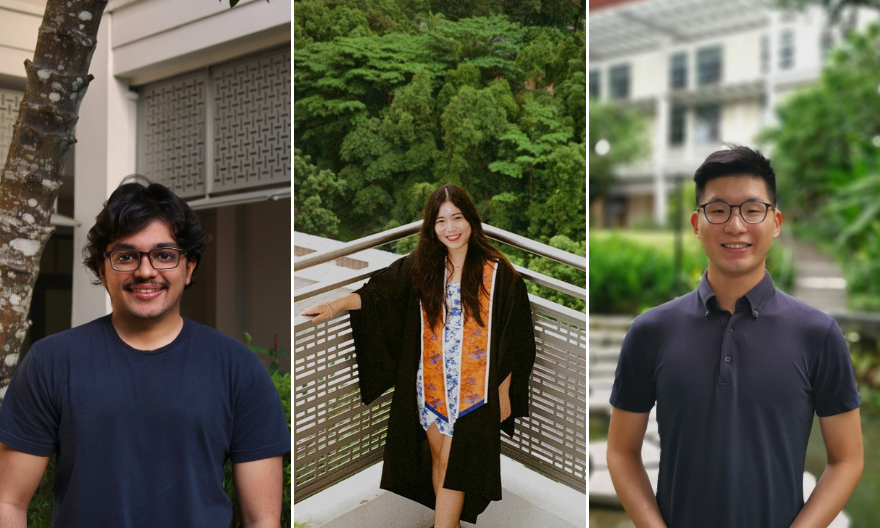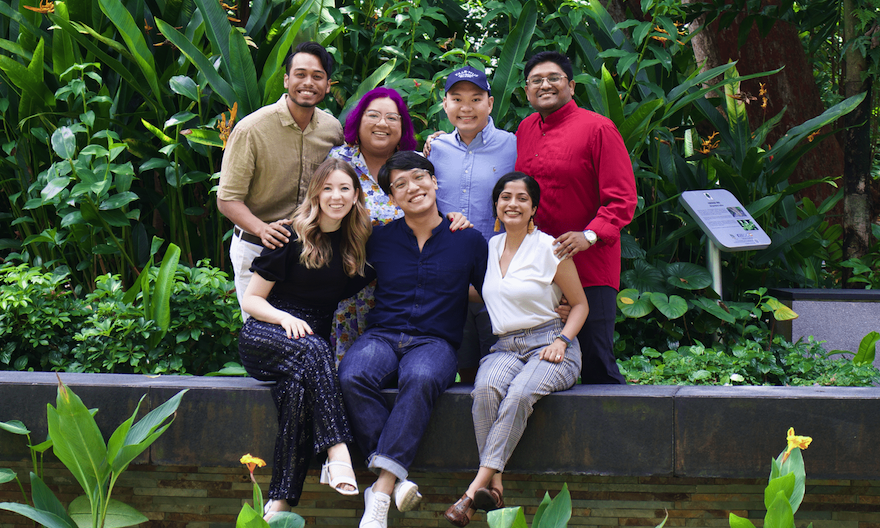Yale-NUS alumni embark on research projects to address global issues
As Singapore and the world face complex challenges today, Yale-NUS alumni have embarked on research initiatives to address the effects of social behaviors on global issues. In particular, these projects shed light on the importance of large-scale cooperation in order to overcome today’s problems.
One such research project tackled the issue of global warming by studying the effect Greta Thunberg – a young Swedish environmental activist widely known for sparking an international movement to combat climate change – has had on mobilising large-scale social change. Anandita Sabherwal (Class of 2019) co-authored a paper based on her team’s findings titled “The Greta Thunberg Effect: Familiarity with Greta Thunberg predicts intentions to engage in climate activism in the United States” which was published in the Journal of Applied Social Psychology.
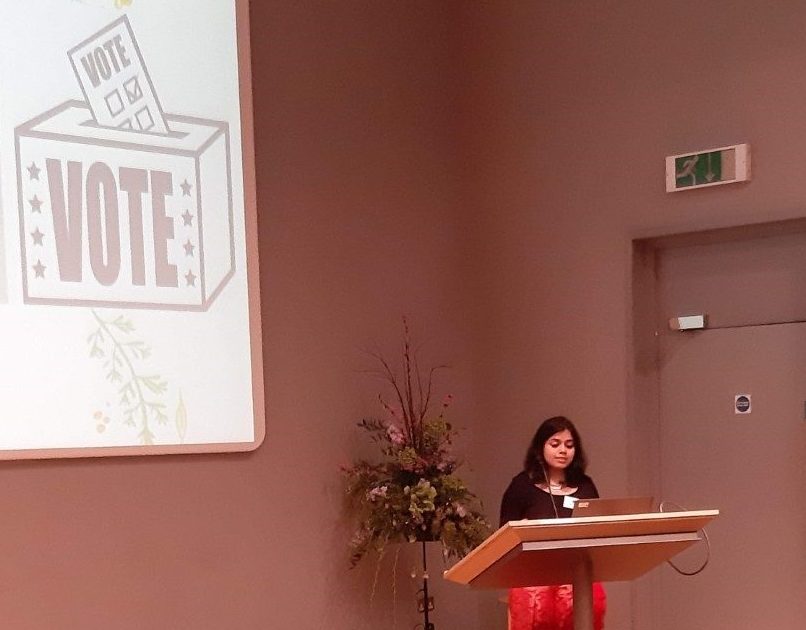 Anandita at a panel for International Women’s Day in Cambridge. Image provided by Anandita.
Anandita at a panel for International Women’s Day in Cambridge. Image provided by Anandita.
“A question that I wanted my research to tackle is: how can we get people to start caring about crucial problems that require them to come together?” said Anandita. “Greta is one of the figures leading the charge on mobilising action. In our research, we wanted to quantify the psychological impact she is having.”
In particular, her research focused on what has been coined the “Greta Thunberg effect”, which suggests that individuals more familiar with Thunberg are more likely to take action to address global warming.
“Our findings show that Greta may be able to motivate climate action by making people feel a strong sense of collective efficacy, or the belief that by working together with others, they can make real difference,” explained Anandita.
For her, working on this project was an opportunity to learn how to overcome new challenges. “When you conduct research on someone as popular as Greta, there is a risk of being enamoured by the person and not really focusing on the psychological phenomena at play,” she said. “I had to think deeply about my hypotheses and the reasoning behind them, and remain unbiased at this stage.”
In the end, she hopes her published results on the “Greta Thunberg effect” will be able to inspire more people to advocate for the fight against climate change. “We hope that this finding highlights the inspiring impact one young person has been able to have,” she concluded, adding, “Clearly, advocacy matters, and when done right, it can mobilise large-scale action across social groups.”
Another research initiative taken on by Yale-NUS alumni and faculty focused on the more recent issue of COVID-19 in Singapore, and the characteristics that would make an individual more likely to voluntarily download the contact tracing mobile application, ‘TraceTogether’. Young Ern Saw and Edina Yi-Qin Tan (both from Class of 2020) worked together with Assistant Professor of Social Sciences (Psychology) Jean Liu to publish the paper “Predicting Public Uptake of Digital Contact Tracing During the COVID-19 Pandemic: Results From a Nationwide Survey in Singapore” in the Journal of Medical Internet Research.
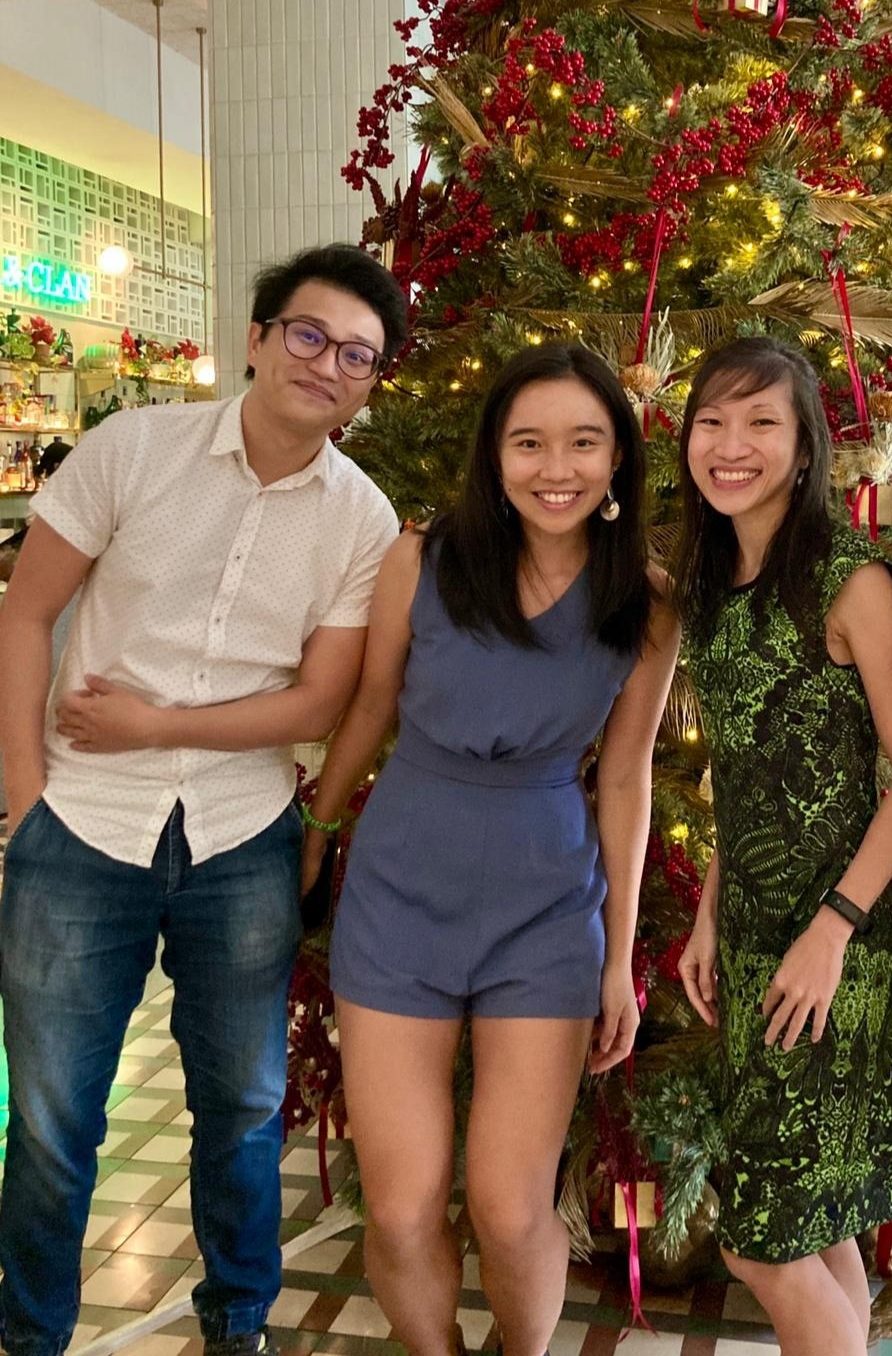 From left to right: Young Ern and Edina with Asst Prof Liu. Image provided by Edina.
From left to right: Young Ern and Edina with Asst Prof Liu. Image provided by Edina.
Explaining the motivations behind their research, Edina said, “We wanted to contribute to the fight against the pandemic. Uniquely positioned in Singapore which has achieved one of the lowest COVID-19 infection rates in the world with the aid of innovative technologies, we felt that this was a prime opportunity to study its uptake.”
In particular, this study aimed to identify the factors that contributed to a high uptake of the ‘TraceTogether’ application use in Singapore, and how other countries around the world could achieve this. “Even before Singapore rolled out the (‘TraceTogether’) tokens, we had one of the highest take-up rates for the ‘TraceTogether’ application via mobile phones,” explained Asst Prof Liu. “We wanted to identify factors that could predict whether people will take up the application. By doing so, we hope that provides tools for other countries trying to boost take-up rates for contact tracing applications.”
The team also had to overcome some unique challenges while conducting their research. Elaborating on the steps the team followed and the obstacles they faced, Edina said, “We first had to conceptualise the study, and find willing participants. Next, we had to learn how to run the analyses appropriate for the dataset. Finally, we had to write a manuscript from the findings as clearly and concisely as possible. Even though these steps seem straightforward, much could go wrong (and did go wrong) along the way.”
Due to the nature of this study being done online, recruiting participants of the desired demographic was also a significant challenge for the team. “A lot of effort was spent on recruiting participants,” said Young Ern. “As we were running this study on goodwill, getting participants to do the survey was tough.”
In the end, their study found that uptake of the contact tracing application, ‘TraceTogether’ was strongly correlated to how much an individual had adjusted his or her lifestyle due to COVID-19. In particular, hand sanitiser use, avoidance of public transportation, and a preference for outdoor venues were associated with higher uptake of ‘TraceTogether’.
When asked about the impact she hopes to achieve with this research, Edina said, “The key to effective crisis response is preparedness, and in order to be prepared one needs to be well-informed. It will be an honour if our research could serve as a valuable piece of information that could aid government policies and ultimately, save lives.”
Looking back on all the work done for this project, Edina reflected on the benefit conducting research has had on her. “Experiencing the intricacies of research has made me realise how important (and difficult!) it is to conduct sound, rigorous research. However, my exposure to research has formed a solid foundation for my future.”
“I feel incredibly blessed to have hired two Yale-NUS alumni in my lab,” concluded Asst Prof Liu. “I hope that their experience in my research lab has given them a sense of how research is conducted, the publication process, how to ‘give away’ your findings to make an impact, and how to navigate the systems surrounding research,” she added.

